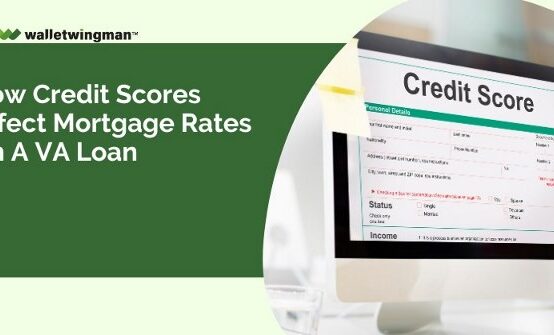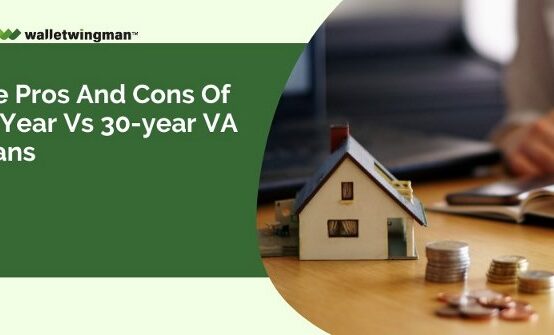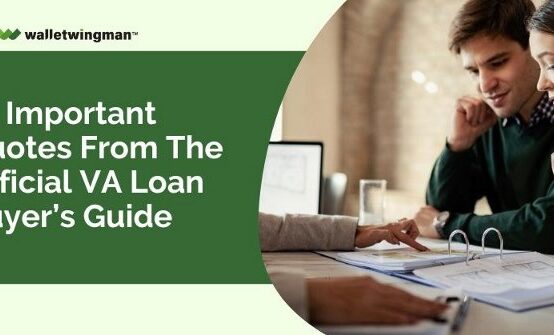The VA loan process involves a two-way flow of information.
As a borrower, you need to gather enough information about the program to understand how it works, what it requires, and how it might benefit you. You’ll also have to deliver much information to your lender during the application and underwriting stage.
This guide explains the kind of knowledge you need when applying for a VA loan and the information you need to provide to keep the process on track.
Understanding VA Loans

Before discussing what kind of information is needed for a VA loan, you should understand the basics of such a loan.
VA loans are specially designed and intended to assist both current and former members of the military together with certain eligible spouses in attaining homeownership. In contrast to regular loans, this type of loan is guaranteed by the US government, which allows lenders to provide borrowers with the best possible loan terms.
VA loans come with no private mortgage insurance (PMI), and their limit of 100% of home value’s financing is just some of the features that effectively make them one of the most affordable and convenient home loans.
Part 1: VA Loan Information You Need to Know
A home purchase is a significant undertaking that requires careful research and planning. This is true whether you’re using a VA or conventional home loan. To succeed, you have to enter the process armed with the right kind of information and knowledge.
Here are some things you should know about VA loans before applying:
1. Benefits of VA loans
Surveys conducted by the Department of Veterans Affairs have shown that many military members and veterans don’t fully understand their VA loan benefits. For example, many believe they have to make a down payment when using a VA loan, which is not valid in most cases.
If you haven’t done so already, spend some time learning about the many benefits this program offers. The most significant advantage is the ability to buy a home with no down payment and no mortgage insurance. VA loans also have some of the most flexible and “forgiving” qualification criteria compared to other mortgage types.
2. VA loan eligibility requirements

Are you eligible for a VA-guaranteed mortgage loan? This is something you need to figure out before applying for the program.
Fortunately, this kind of information can be easily obtained. You can find information and guidelines relating to VA loan eligibility on the Department of Veterans Affairs website and also right here on our blog.
Generally speaking, the following groups are eligible:
- Active-duty military who have served for at least 90 days
- National Guard and Reserve members who have completed at least six years of regular service or 90 days of active duty
- Surviving spouse of a military person who died in the service or due to a service-related disability
3. Steps in the VA loan process
While you’re at it, spend some time learning about the different VA home loan requirements and the buying process. It can be a complex and relatively lengthy process that involves a lot of individual steps and paperwork.
Most home buyers who use VA loans begin the process by getting pre-approved for a specific mortgage amount. After that, you can find a real estate agent and start shopping for a home.
Once you find a home that meets your needs, you can evaluate the asking price and make an offer. A home appraisal will follow, during which a VA-approved appraiser will determine the home’s value and condition.
If everything checks out, you can proceed to closing, sign a bunch of documents, and get the keys to your new house!
Part 2: Information Your Lender Needs From You
Research and information gathering can help you prepare for the VA loan process and increase your chance for success. But the information flow doesn’t end there.
You’ll also have to provide a variety of documents and fulfill VA loan inspection requirements to your mortgage lender when applying for a VA loan. This could include the following items:
1. Certificate of Eligibility (COE)

You’ll need to obtain your “COE” document from the Department of Veterans Affairs. As its name suggests, the Certificate of Eligibility shows that you are qualified for a VA loan based on the length and nature of your military service.
You can request this document online, through the VA.gov website, or by mail. Your mortgage lender can also help you obtain your Certificate of Eligibility. Veterans, active-duty military personnel, members of the National Guard, and reservists may generally get a Certificate of Eligibility. Obtainable via the VA’s eBenefits site or by filing VA Form 26-1880, this document is evidence of the applicant’s eligibility for VA loan benefits. Your lender needs this information to initiate your VA loan application.
2. Bank statements

Mortgage lenders typically request bank statements for the past two months or so. They use this information to verify and document your financial assets, income, and large deposits or withdrawals.
Providing two months of bank statements gives lenders a snapshot of your financial situation and helps them assess your ability to afford the mortgage payments.
3. Pay stubs and W-2 forms
When applying for a VA loan, you might also have to provide pay stubs for the past 30 days (showing year-to-date earnings) and W-2 tax forms for the past two years. Mortgage lenders use this information to verify your income and employment history as part of the VA loan underwriting process.
4. Employment Verification
Employment verification is a vital entity of the VA loan application process wherein lenders check the stability and consistency of income in order to give approval.
This verification has to do with a potential employee’s employment status and, in most cases, will need to be supported with documentation such as a payslip or a letter from the employer.
The primary means of the lender in this matter is to judge the ability of the applicant to be trusted and to fulfill the duties of the mortgage.
Through job verification, lenders alleviate risk and affirm that the borrower can afford this loan easily, making the lending transaction more convenient and reliable.
4. Purchase agreement and property details
Your lender will also need information about the property you’re purchasing.
You obviously won’t have this information when you first apply for a VA loan or get pre-approved. But you’ll have to provide it later in the process before you can proceed to the closing. At a minimum, your lender will need a signed purchase agreement with details about the home.
5. Letters of explanation
Mortgage underwriting is a crucial stage during the VA loan process. The underwriter will scrutinize every aspect of the loan file, including your financial information and the home appraisal report mentioned earlier.
During the underwriting stage, borrowers often request additional information that the underwriter needs to complete the process. For instance, underwriters sometimes require borrowers to provide a letter of explanation relating to a gap in employment, a large bank deposit, a past bankruptcy, etc.
If you receive such a request, provide the information as quickly and thoroughly as possible to avoid delays in your VA loan closing process.
6. Credit History

Evaluating a VA loan’s credit history is crucial to applicant approval, regardless of less stringent criteria than conventional loans.
An applicant’s creditworthiness is assessed by lenders, taking into account factors such as credit history, payment record, outstanding credit balances, and credit account activity.
VA loans are renowned for lenience, and a VA loan requirements credit score is usually required as a minimum requirement. For credit report requirements, applicants will submit detailed credit reports from the past two years with complete financial data in order to demonstrate financial responsibility.
This holistic approach aids lenders in thoroughly assessing risk, and from this, the loan repayment is predictable, just as the borrower needs.
Although leniency takes effect, a well-established credit history remains crucial as it helps financial institutions assess a customer’s creditworthiness and is critical for the approval process.
7. Debt-related information
As with conventional and FHA mortgage loans, VA loans often limit the amount of debt a person can have. Mortgage lenders use the “deb-to-income ratio” to determine if a borrower can take on a mortgage loan, as well as the maximum amount.
When applying for a VA loan, you should provide information and documents about your recurring debts. This can include VA loan credit requirements like loan documents and any other financial obligations you are currently obligated to pay.
Conclusion
Being a VA loan borrower is tremendously advantageous to every military personnel and their family as the threshold for homeownership is lowered and made affordable for them.
Nevertheless, the application for the VA business loan requirements includes extreme thoroughness with details and a specific set of documents.
Prospective borrowers can better prepare for the VA loan application process by being aware of what is needed, which can help them move through the process more smoothly and raise their chances for approval.
Knowledgeable lenders, along with a good understanding of VA loan requirements, will help prospective homeowners start their journey on the path of ownership with confidence and peace of mind.


 How to Buy a Condo Unit with a VA Mortgage Loan
How to Buy a Condo Unit with a VA Mortgage Loan  How Credit Scores Affect Mortgage Rates on a VA Loan
How Credit Scores Affect Mortgage Rates on a VA Loan  How Much Can I Borrow When Using a VA Loan to Buy a House?
How Much Can I Borrow When Using a VA Loan to Buy a House?  The Pros and Cons of 15-Year vs 30-year VA loans
The Pros and Cons of 15-Year vs 30-year VA loans  10 Important Quotes from the Official VA Loan Buyer’s Guide
10 Important Quotes from the Official VA Loan Buyer’s Guide  Types of Properties You Can and Cannot Buy With a VA Loan
Types of Properties You Can and Cannot Buy With a VA Loan 